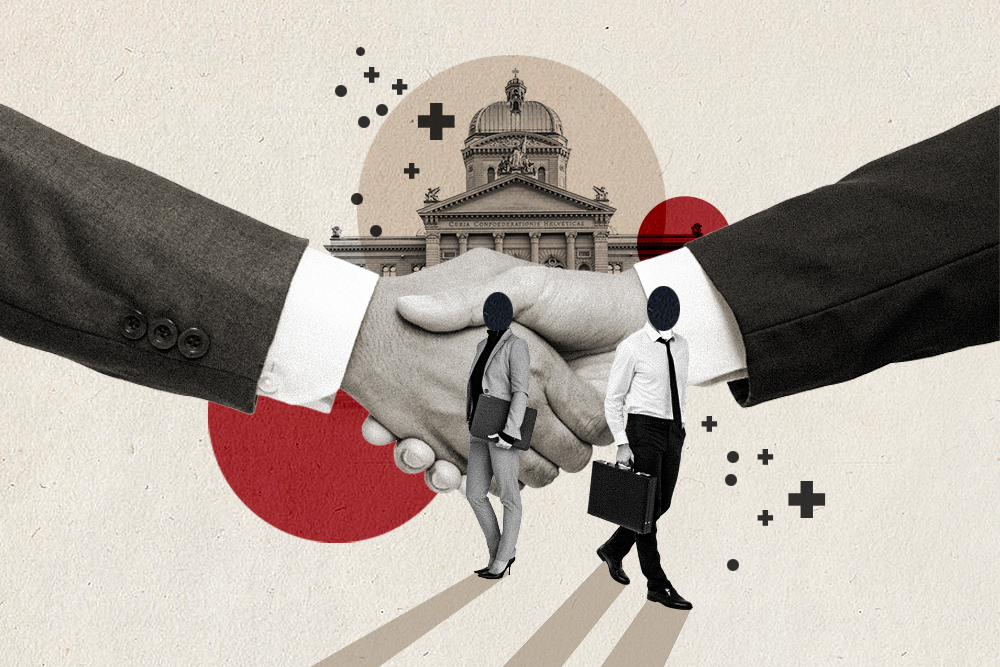Mild-Mannered Jordan Hands Markets Seismic Surprise in Cap Exit
(Bloomberg) — Thomas Jordan, invariably calm and mild- mannered, delivered the monetary policy equivalent of a nuclear bomb.
The Swiss National Bank, which he leads, stunned markets around the world today by getting rid of its three-year-old cap of 1.20 per euro on the franc in what was a major policy reversal for the typically staid institution.
“There was a big silence, and then someone said ‘boom,’” Ipek Ozkardeskaya, an analyst at Swissquote Bank SA in Gland, Switzerland, said of the atmosphere in her office when the announcement hit. “The reaction, it was panic.”
Soft-spoken Jordan, 51, has worked for the central bank since 1997, climbing up the institution’s ranks to become its head in 2012 after then-President Philipp Hildebrand resigned following an uproar over his wife buying foreign currency just before the minimum exchange rate was introduced.
Jordan epitomizes his nation’s preference for a discreet and consensus-oriented approach to solving problems and an aversion to people who make a splash. Members of the SNB’s three-man governing board don’t disagree with one another publicly, and no minutes of their deliberations are published. For much of the past year, interviews Jordan gave to newspapers read remarkably similar, yielding no clue a major policy change was on the horizon.
He may have been swayed by plunging oil prices and an expectation of new European Central Bank stimulus next week. They were reinforcing Switzerland’s status as an investment haven and keeping upward pressure on the franc cap.
Tsunami for Exporters
“It wasn’t a panic reaction — it was well considered,” Jordan told reporters today, packed into a overheated room on the third floor of the central bank’s gray Zurich building modeled on a Italian Renaissance palace.
The SNB decided to drop the cap, set in September 2011 to shield the economy from the euro area’s debt crisis, because it was no longer “sustainable,” he said.
Jordan, who regularly arrives at public events without much entourage, studied in Bern before spending three years at Harvard, where he worked under professor Benjamin Friedman. He met his wife while they still were at school and has two sons.
Today’s announcement, which reversed what one of Jordan’s fellow governing board members had termed a “pillar” of policy just a few days ago, sent the franc up as much as 41 percent against the euro. Swatch Group Chief Executive Officer Nick Hayek reacted with the comment “words fail me” and compared the step to a “tsunami” for exporters and Swiss tourism.
Still, it’s not Jordan’s first time rocking markets.
In June 2012, just two months after he was formally named president, the SNB courted controversy by publicly calling on Credit Suisse Group AG, Switzerland’s second biggest bank, to boost capital. It’s shares fell as much as 11 percent.
Getting rid of the cap was the “the right decision,” Oswald Gruebel, the former chief executive officer of both Credit Suisse and UBS Group AG, told Bloomberg News today. “It will hurt the economy over a short time, but it would have been much worse if the SNB would have done this step much later.”
To contact the reporters on this story: Catherine Bosley in Zurich at cbosley1@bloomberg.net; Elena Logutenkova in Zurich at elogutenkova@bloomberg.net To contact the editors responsible for this story: Fergal O’Brien at fobrien@bloomberg.net Zoe Schneeweiss







